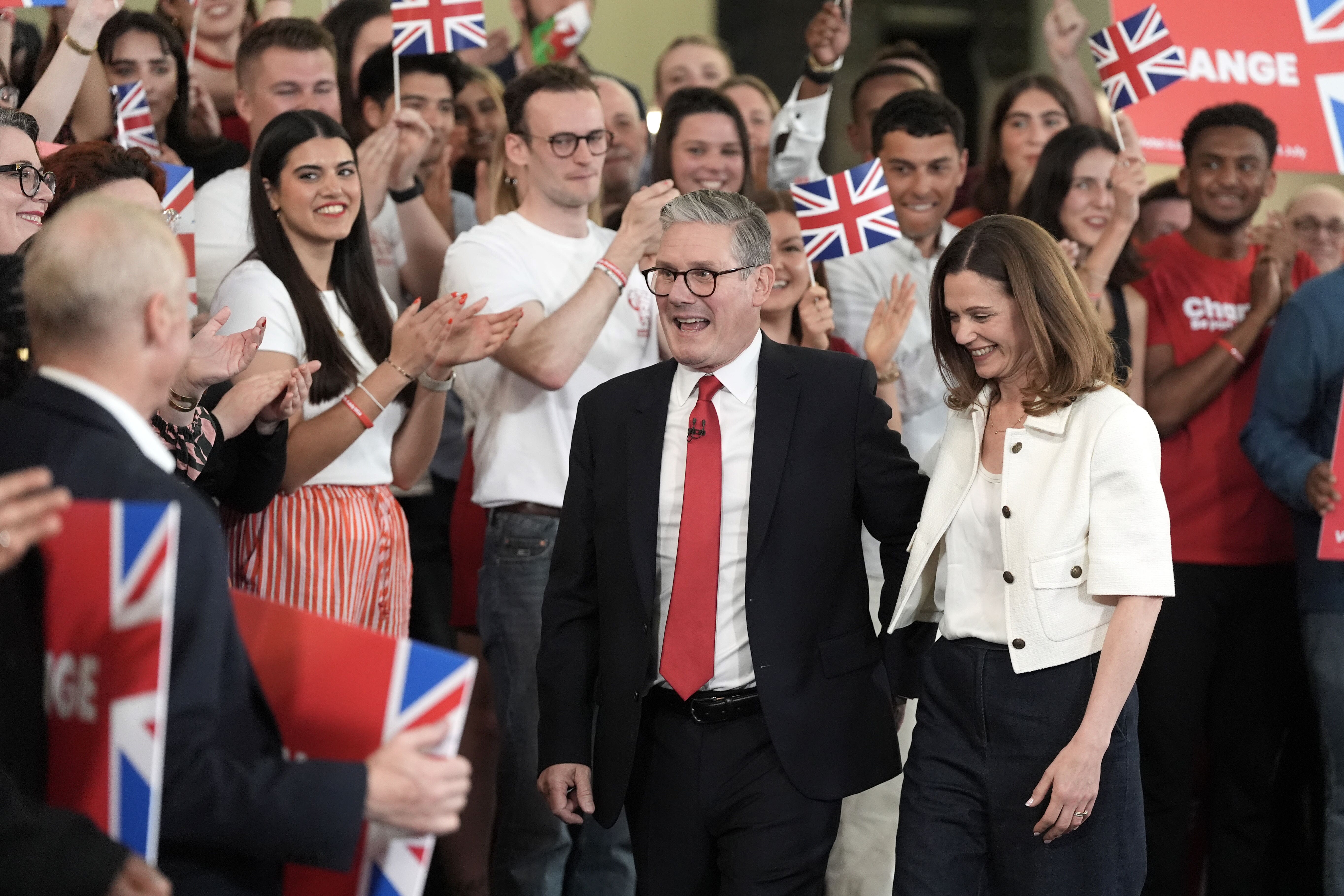Starmer looks to ‘sunlight of hope’ as he hails landslide win
Sir Keir Starmer echoed Tony Blair’s reference to the new dawn in a victory speech in the early hours of Friday.

The “sunlight of hope” is “shining once again” on Britain, Sir Keir Starmer said as he hailed his party’s landslide election victory.
In the early hours of Friday morning, the Labour leader addressed party supporters in the Tate Modern’s Turbine Hall, telling them: “We did it.”
He spoke less than a mile from the South Bank, where in 1997 Tony Blair told his own victory rally that “a new dawn has broken”.
At 5am on Friday, just after results confirmed Labour had secured the 326 seats needed for a majority, Sir Keir once again invoked the Sun.
He said: “Across our country, people will be waking up to the news, relief that a weight has been lifted, a burden finally removed from the shoulders of this great nation.
“And now we can look forward, walk into the morning, the sunlight of hope, pale at first but getting stronger through the day, shining once again, on a country with the opportunity after 14 years to get its future back.”
Commenting that election victories do not “fall from the sky”, he said his purpose would be to “relight the fire” of hope in Britain.
He added: “We said we would end the chaos and we will. We said we would turn the page and we have.
“Today we start the next chapter, begin the work of change, the mission of national renewal and start to rebuild our country.”
As he left the stage, embracing his wife Victoria, Labour supporters cheered and stamped their feet, while others cried.
Exit polls had forecast a stunning victory for Labour, projecting it would win 410 seats and a majority of 170 – just shy of the 179-seat majority the party won in 1997.
While it may not have been the majority of more than 200 predicted by some polls in the run-up to election day, it is still a dramatic recovery from 2019, when the party suffered its worst defeat since the 1930s.
Former party leader Lord Neil Kinnock, who was in the crowd in the Turbine Hall, described as “the biggest comeback since Lazarus”.
The party picked up seats across the North and Midlands, both winning back the constituencies it lost to Boris Johnson in 2019 and making incursions deep into traditional Tory territory.
It also staged a comeback in Scotland, becoming the largest party north of the border after years of SNP dominance, while nine Labour gains helped see the Conservatives wiped out in Wales.
But it did not all go Labour’s way.
Former leader Jeremy Corbyn, now standing as an independent, clung on in Islington North, while the backlash to Labour’s stance on Gaza saw it lose Blackburn, Leicester South and Dewsbury and Batley to independents – and whittled away the party’s majorities in formerly safe seats.
But former journalist Paul Waugh managed to win back Rochdale from George Galloway, who won the seat in a shock by-election result in February.
Another shadow cabinet loss was Thangam Debbonaire, who was defeated in Bristol Central by Green Party co-leader Carla Denyer.
Bookmark popover
Removed from bookmarks